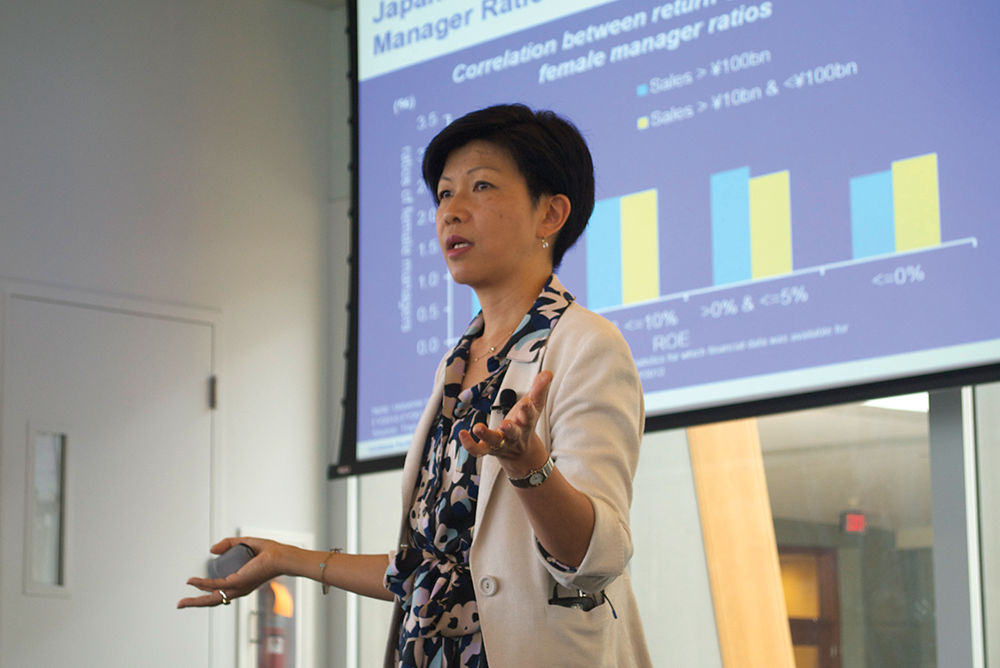Kathy Matsui, the chief Japan equity strategist at Goldman Sachs, discussed Japanese Prime Minister Shinzo Abe’s economic policy, “Abenomics,” in the Fisher Colloquium on Wednesday in an event presented by Global Women’s Leadership Initiative, the Asian Studies Program, the Georgetown Institution for Women, Peace and Security, and the McDonough School of Business.
Nobuko Sasae, wife of Japanese Ambassador to the United States Kenichiro Sasae, and GIWPS Executive Director Melanne Verveer (FLL ’66, GRD ’69) also spoke about Matsui’s idea of “Womenomics,” a continuation of Abe’s policy that engenders pragmatic feminism for the Japanese economy.
Matsui began by breaking down Abenomics into three objectives: fiscal stimulus, quantitative easing and structural reform. Womenomics is part of the third goal. She then outlined problems with the Japanese tax system.
“Our corporate tax rate is about 36 percent, our marginal individual income tax rate is still 50 percent. … Yet the tax revenue pool is very small. So there’s a problem here. What is that problem? It’s called not everybody is paying,” she said. “Japan, to this day, does not have a tax payer identification system. So guess what? It’s kind of easy [to evade].”
According to Matsui, 70 percent of Japanese corporations do not pay taxes.
Matsui said that the Japanese tax base is too narrow and added that Abe intends to introduce a taxpayer ID system.
Matsui disproved the myths that Japanese women quit working due to pull factors, such as wanting to spend more time with their children, that most women do not want to return to work and that the number of women working has no impact on the profit or the economy.
“The more women represented in management the higher the returns on equity,” Matsui said.
She suggested that women offer alternative thinking to companies that otherwise fall victim to groupthink.
Matsui set the goals for corporations and for society on the screen.
“The number one is the top bullet which is to stress the business case for diversity,” she said.
Other goals were to give more work flexibility, use better evaluation, pay and promotion models, and set clear diversity goals. For society, she encouraged the elimination of the myths and increased gender equality at home.
After the presentation Verveer moderated a discussion between Matsui and Sasae.
“I think the role model, having a role model, is very important and because if you have a role model in your family, if you have a role model in your organization, your society overall, I think that will make your paths easier because you do not have to be a pioneer,” Sasae said.
When asked about the cultural obstacles for women to enter the Japanese workforce Matsui said that the necessity of increasing labor would overcome cultural skepticisms.
“Obviously for a country that is steeped in tradition, and history, legacy, culture, this isn’t going to happen overnight. Having said that though, the economic reality, which is called labor shortages, are very, very real and very, very widespread,” Matsui said.
Matsui’s myth-dispelling resonated with Yuki Shimizu (COL ’17) .
“Most of the speech was based on the myths that she was talking about so it was great to learn that it’s just a myth and that reality is so much different and many of the women want to go back to work after they leave,” Shimizu said.















